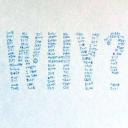-- DOR: what was it? why was it needed? how did people react to it? and how did people feel about the government having "full control" over their lives?
-- How Was the Country Fed? : How was food shared equally? when was rationing brought in? why had it not been brought in sooner? and why did people put up with shortages?
-- Propaganda: how did the government use propaganda and censorship? why was it necessary? did it work, was it effective? How did the government encourage people to "hate" the Germans? and did people in Britain support the war?
-- Troops: how did the government get enough troops for the armed forces? why did men volunteer in such incredible numbers? why did the government need to bring in conscription in early 1916? and how did the government deal with men who refused to be conscripted?
-- The Impact of the War on Women: how did the war impact on the campaign be the Suffragists and Suffragettes? what jobs did women take on? how important was the work of women during the war? and did the war bring about important changes for all classes of women?
Can anyone answer any of these please? (even if its only one of them :') ) I have this assignment about these topics and its due in soon...... any answers will help, probably, so THANKYOU xx
3 Answers
When this topic heading was first mentioned I could immediately associate the home front with the Second World War but I was at a loss to think of what this meant in the First World War. Most people will have heard tales from relations who lived through WW2 or will have seen the Dad’s Army series and I'm sure that this probably means that many others would have reacted as I did.
However, after just a quick search I came up with a wide range of material on Home Front activities that I knew nothing, or very little, about. And so after this short investigation I stand suitably corrected and eager to find out more on the subject.
Some of the topics that cropped up include -
Women in Industry
Mrs Millicent Fawcett, who was president of the National Union of Women's Suffrage Societies between 1897 and 1918, said at the end of the war - 'The war revolutionised the industrial position of women - it found them serfs and left them free.'
Between 1914 and 1918, it has been estimated that two million women were required to replace men in a wide range of employment, over 260,000 were working as farm labourers in the Women’s Land Army.
Women in The Forces
80,000 women served in the forces in a non-combatant role.
Rationing
WW1 saw an attempt by the Germans to cut of supplies to Britain. By the end of 1916 German U-boats were sinking an average of 300,000 tons of shipping each month. Food was becoming a little more scarce but in 1917 panic buying led to shortages. So in 1918 rationing was introduced as a measure to ensure supplies rather than as an attempt to reduce consumption.
Bombing Raids
Compared with WW2 the levels of raids were much lower but still killed 1,414 civilians. (60 times this were killed in WW2). However the psychological effects were proportionately much worse since this had never happened before.
Home Guard
A defence force was formed in the same way that a home guard was established during WW2. It consisted mainly of ex-soldiers that were too old to sign up or men who were unfit.
| 13 years ago. Rating: 4 | |
I thinks you should search for the answers yourself, and that you'll get answers faster if you'll do so.
Searching for answers can be done with search engines such as https://www.Google.com: at google.com there is a search box. In the search box type key words found in the questions. For instance: one of the questions you posted was about what was the food available in the country in WW1, so the key words can be 'food', 'country name', and 'ww1'
| 13 years ago. Rating: 1 | |

 applebottomjean1234
applebottomjean1234
 Deleted User
Deleted User
 Best answer!
Best answer!
 nomdeplume
nomdeplume
 jenp
jenp




